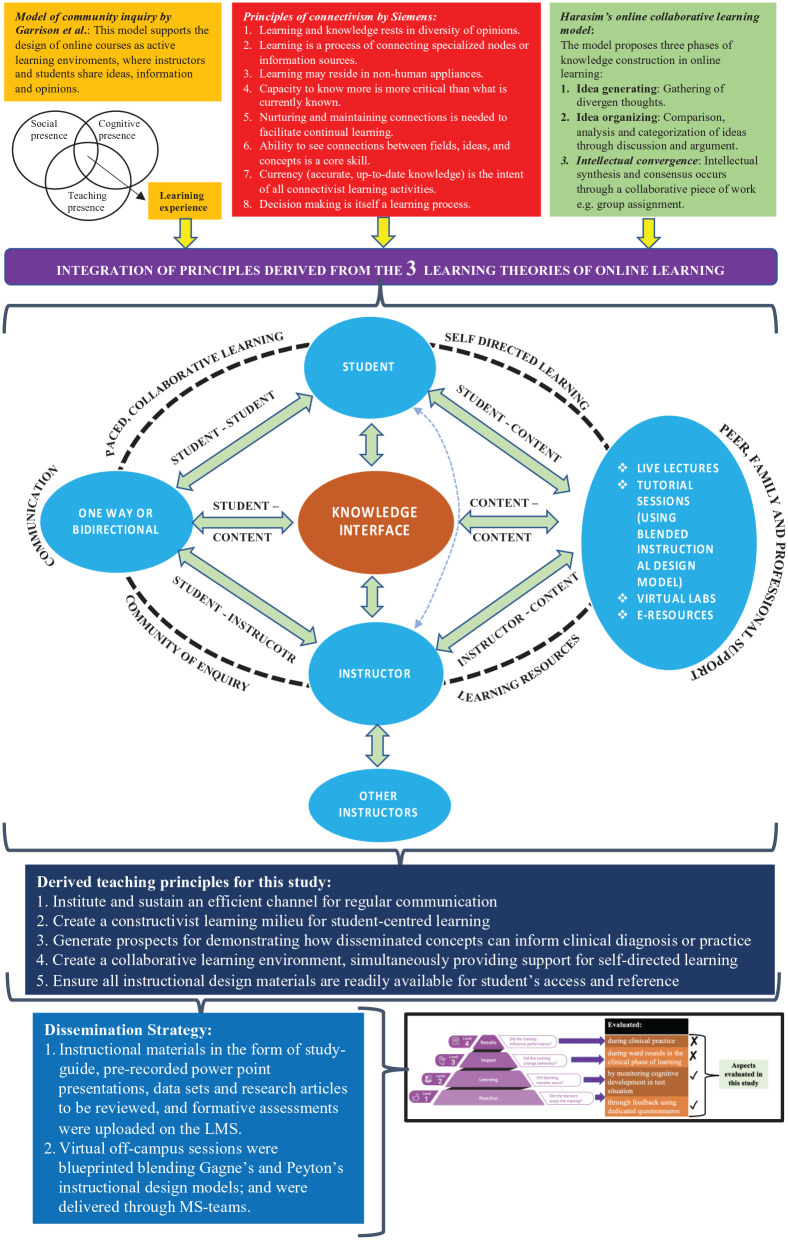Figure 1.
The design of the DL framework. Note: Firstly, by employing 3 core educational theories of DL: A. model of community enquiry by Garrison et al;15,16 B. principles of connectivism by Siemens;17-20 and C. model of online collaborative learning by Harasim,21,22 we derived an integrated model to blueprint a DL framework. This integrated model was improved by applying the precepts of Anderson’s DL model. 23 Secondly, by exploiting the consequential and improved model, we derived all-purpose teaching principles that can be employed to strategize a guide-plan for any DL course. Thirdly, we expounded on the implementation of these derived all-purpose teaching principles during the COVID-19 lockdown using the exemplar of the fundamentals in epidemiology and biostatistics (FEB) course in our competency-based medical curriculum, where virtual live-sessions integrated into the DL framework were designed according to a blended approach that involved Gagne’s 9-events of instruction and Peyton’s 4-step approach (Refer to Table 1 for details). The efficiency of the DL framework was evaluated using first 2 levels of Kirkpatrick’s framework that is, perception and cognitive development.

